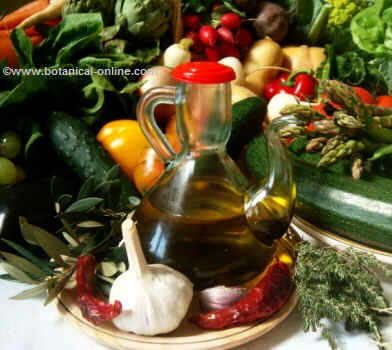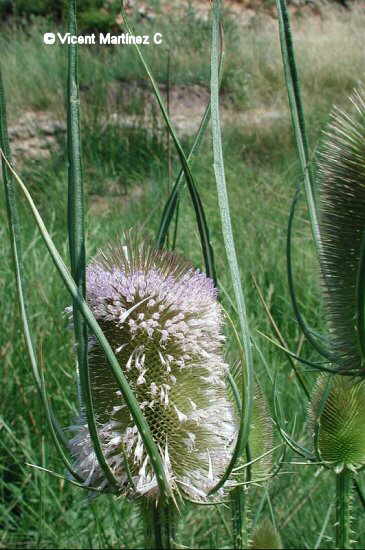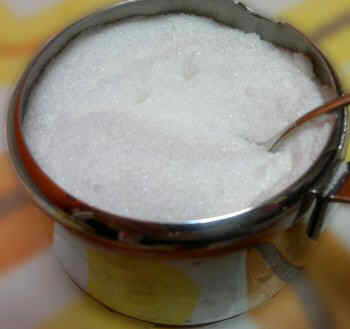Contents
- 1 Preparations and home remedies with thyme
- 1.1 Thyme herbal remedies in phytotherapy
- 1.2 LIST OF THYME REMEDIES
- 1.3 Thyme as a natural antibiotic against infections
- 1.4 How do you take thyme for infections?
- 1.5 Thyme gargles
- 1.6 Thyme oil and other aromatic herbs
- 1.7 Why is thyme oil recommended?
- 1.8 Thyme as an aromatic herb: the phytotherapy hidden in the kitchen
- 1.9 Thyme honey
Preparations and home remedies with thyme
Thyme herbal remedies in phytotherapy
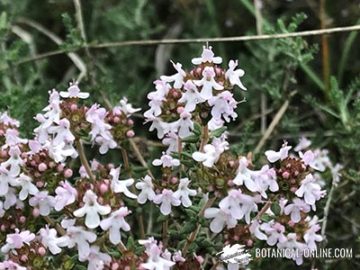
In phytotherapy or herbal medicine, thyme is considered a powerful antiseptic, being used as a traditional remedy for the treatment of respiratory, digestive and genitourinary infections.
It is also a hepatoprotective, antitussive, balsamic, mucolytic, expectorant, antibiotic, antioxidant, antispasmodic, diuretic, emmenagogue, stimulant and tonic plant.
LIST OF THYME REMEDIES
Thyme as a natural antibiotic against infections
Thyme is an excellent plant to prepare natural remedies for respiratory, digestive or genitourinary infections.
It is an ancient natural antibiotic remedy, highly disinfectant and immunostimulant. It is worth mentioning that,
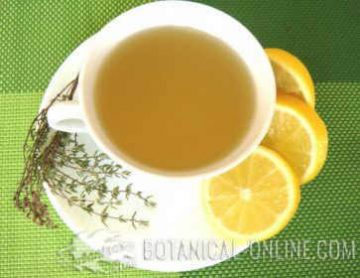
whenever possible, it is preferable to use natural antibiotics, such as thyme, rather than resorting to antibiotic drugs, since plants are much more respectful of the internal environment of the organism.
- Thyme contains essential oils capable of fighting most pathogenic bacteria that cause illnesses, flu and catarrhal processes.
In addition, unlike drugs, thyme stimulates the body’s natural defenses without producing the side effects of antibiotic drugs on intestinal and body health.
How do you take thyme for infections?
To obtain its essential oils, thyme can be taken as an infusion or in dried plant, generally used as an aromatic herb in dishes or in a thyme soup.
*More information:
– How to make thyme infusion and properties
– Thyme and ginger infusion properties
Thyme gargles
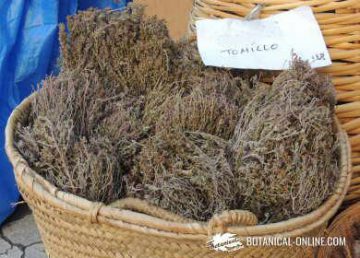
Thyme gargles are antiseptic and astringent. They are very suitable when there is gum inflammation, gingivitis or toothache. A concentrated infusion is prepared (2 tablespoons thyme per cup). Let cool and gargle.
Thyme oil and other aromatic herbs
Thyme oil consists of macerating the dried leaves and flowers of the plant in a virgin oil, inside a glass container. The result is an oil with excellent properties and a very special aroma.
To prepare aromatic oils, thyme is often combined with other herbs such as pepper, garlic, turmeric, oregano, tarragon, savory, or rosemary, which add aromas and virtues to the oil.
Why is thyme oil recommended?
In addition to its nutritional benefits, it has been proven that macerating aromatic herbs in oil makes the oil
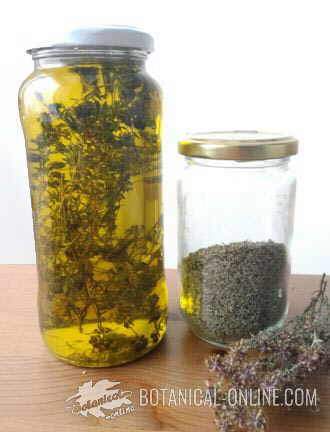
retain its properties better for longer.
That is, the components of the aromatic herbs act as preservatives for the oil and its components (its healthy fats, vitamins and flavonoids), preventing it from going rancid.
*More information: Herbal oil recipe
Thyme can be added daily to recipes to take advantage of its properties and its nutritional value (potassium, calcium and antioxidants). Aromatic herbs are very interesting to improve health. However, they do not appear in any food pyramid or nutrition guide.
Aromatic herbs provide a lot of potassium, a mineral with proven benefits to improve hypertension, heart health and bone health. A diet rich in potassium has even been linked to a lower risk of kidney stones.
Thyme honey
Thyme honey is produced by bees when they forage mainly thyme flowers in spring. It is an aromatic honey with many benefits.
![]() More information on thyme
More information on thyme



